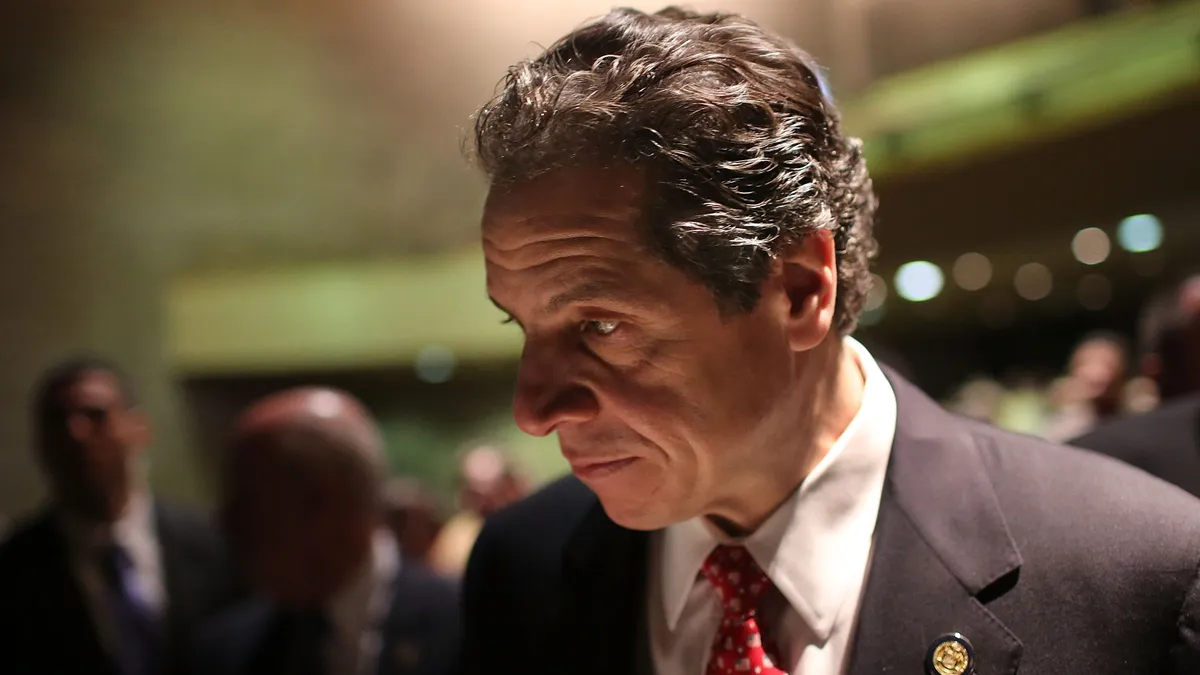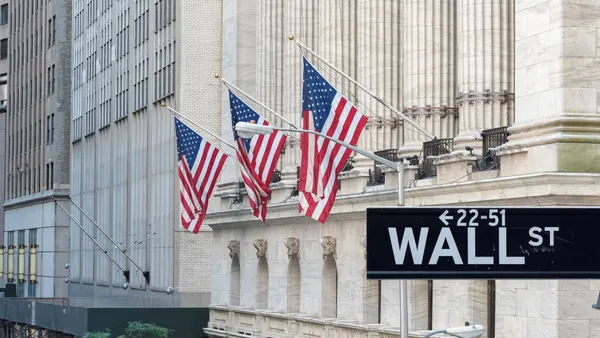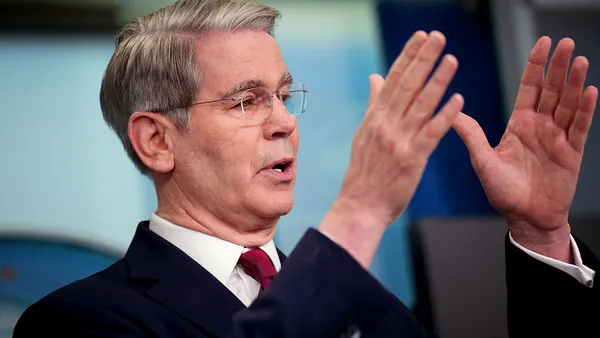Dive Brief:
-
New York Gov. Andrew Cuomo signed a bill Thursday aimed at helping consumers avoid bank overdraft fees.
-
The law requires New York-regulated banks to process checks in the order they are received, or from smallest to largest, to prevent customers from racking up fees for overdrawing their accounts. "If a bank receives a check for a greater amount of money than the balance in the account, it may decline to pay the check," the governor’s office said in a statement. "However, the banking institution must honor any smaller checks that can be paid with the existing account balance." Under the current law, banks can reject the subsequent smaller checks, even if there are sufficient funds in the account to pay them.
-
The new law, which takes effect Jan. 1, comes as lawmakers and regulators are paying more attention to overdraft fees and the revenue they generated for banks during the pandemic. Many banks have also revamped their overdraft policies amid the increased scrutiny.
Dive Insight:
"The COVID pandemic had a devastating effect on our economy and as a result, many New Yorkers still struggle to pay their bills, and the arbitrary overdraft fees that banks have continued to issue only add insult to injury," Cuomo said in a statement. "This legislation will require banks to take several actions that reduce the opportunities for charging overdraft fees and keep more money in New Yorkers’ pockets. We continue to face the economic impacts of the COVID-19 pandemic and this commonsense bill will help many of the state’s residents who need it most."
The New York bill comes amid a growing debate over the fairness or need for overdraft fees.
Lawmakers took aim at the nation’s largest banks in May, during a pair of hearings on Capitol Hill, highlighting the reported $31.3 billion in fees U.S. banks collected in 2020.
Some community banks have also garnered attention from lawmakers and regulators for the large portion of their revenue that comes from the fees.
During a hearing this month, Michael Hsu, the acting head of the Office of the Comptroller of the Currency (OCC), told senators his agency is "looking very closely at overdrafts" after Sen. Chris Van Hollen, D-MD, highlighted several community banks that made more money on overdraft revenues than profits last year.
"Excessive fees on overdrafts, predatory lending, high-cost debt traps — these things shouldn't have a place in the federal banking system," Hsu said. "We have a review going on, these particular institutions have been identified, as well as other practices. We're going to use the full range, within our supervisory toolkit, to address it."
Hsu hinted at an interagency effort to address overdrafts, adding there is "draft work to address precisely that particular issue."
Lawmakers are also pushing legislation that would force banks to be more transparent regarding their overdraft policies, as well as crack down on practices they say are predatory.
Rep. Carolyn Maloney, D-NY, introduced her Overdraft Protection Act in June, a bill that would prevent banks from charging a customer more than one overdraft fee in any calendar month, and would limit to six the number of overdraft fees a bank can charge a customer per year. The bill would also require banks to disclose their overdraft fee limit, opt-in policies and alternative options to overdraft coverage.
Some banks are introducing new features that address the issue and aim to help customers avoid the fees.
Lenders such as Frost Bank, Huntington Bank and PNC have revised their overdraft policies to include features such as grace periods, a line of credit and notifications for when a consumer’s account is low in cash.
Several financial institutions such as Ally Financial and Alliant Credit Union have eliminated the fee this year.
Cuomo signed the New York legislation just days before he is set to leave office. His resignation, amid a spate of sexual harassment allegations, takes effect Aug. 24.














